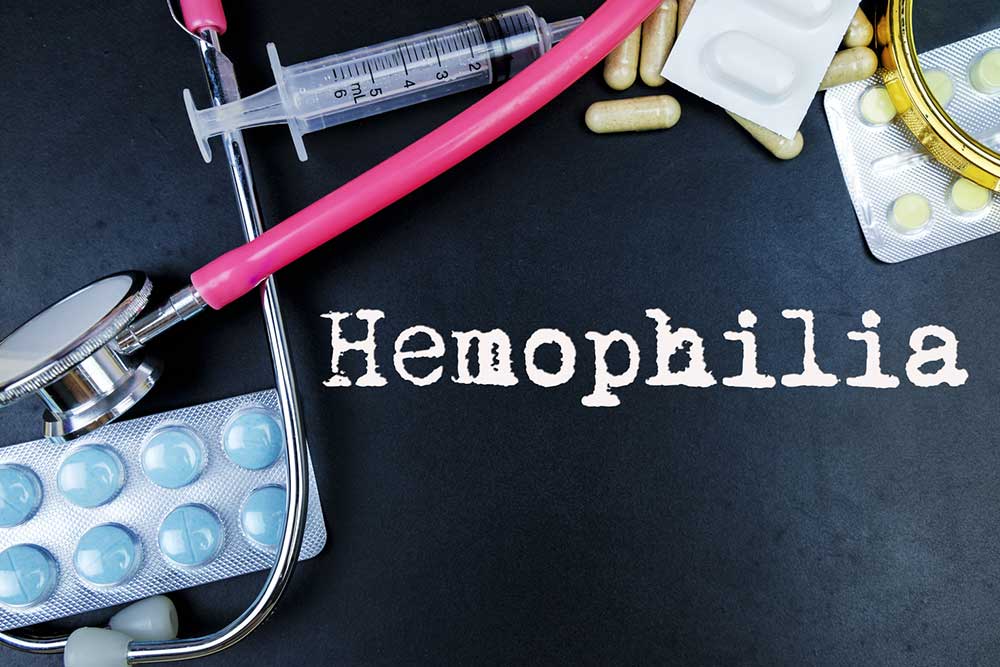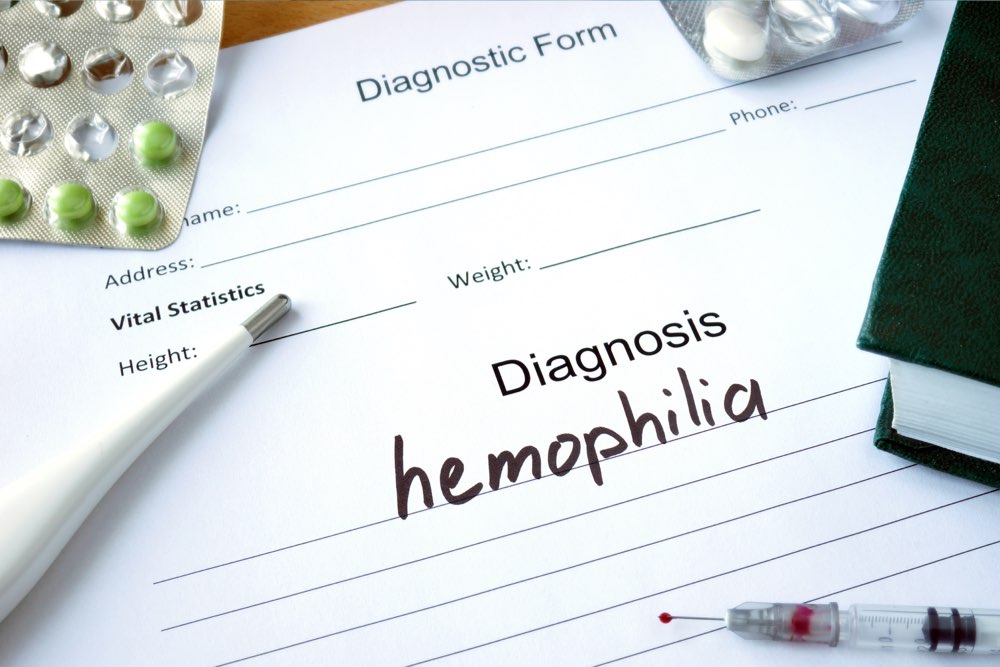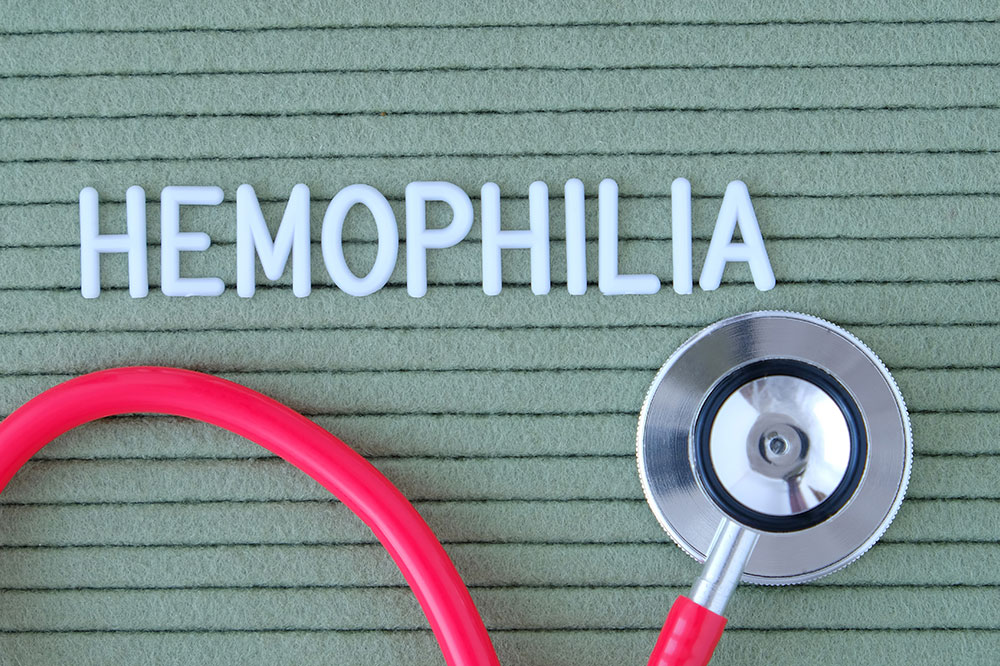Causes, Symptoms, and Complications of Hemophilia
The human body does its best to protect itself from ailments and injuries; the immune system takes care of the diseases, whereas, blood loss due to injuries are taken care of by blood clotting or the process of coagulation. Blood clotting might not appear to be quite significant, but it prevents excessive bleeding when you rupture a blood vessel. Once the wound heals, the body breaks down the clots on its own.

What is hemophilia?
Hemophilia is a rare condition which is known to affect one in 10,000 people according to the statistics of the World Federation of Hemophilia (WFH). It is a condition in which the blood does not clot like it normally does as it lacks the sufficient blood-clotting proteins (clotting factors). This can prove quite disastrous when a person is injured and the blood does not clot to prevent excessive bleeding. The absence of the clotting factors is incredibly dangerous and can eventually lead to fatal situations. There are 13 types of clotting factors which work with the platelets to help clot the blood and prevent excessive bleeding. Moreover, there are two types of hemophilia: A and B, each caused by different factors and affecting people in different ways.
Causes of hemophilia
Hemophilia is a genetic disorder that is caused when the baby inherits a mutated gene from the mother’s X chromosome. It is believed that hemophilia can be caused by a new genetic mutation as well. Women are often the carrier of the mutated gene, but this gene is inherited by the son as they inherit the single X chromosome from the mother and are at a greater risk of developing hemophilia in future. Whereas, daughters inherit two chromosomes, one from each parent. So, even if she inherits the chromosome with the hemophilia mutation and becomes a carrier, the other X chromosome from the other parent comes to her rescue; it provides normal clotting factors.
Men who suffer from hemophilia do not pass on this disorder to their sons as boys inherit only a Y chromosome from their father. However, fathers with hemophilia pass on this condition to their daughters as they pass on the X chromosome to the daughter and the daughter becomes the carrier of this disorder. As hemophilia is an inherited condition, about 70 percent of people with this condition can trace it back to their family for multiple generations.
Though hemophilia is an inherited condition, a phenomenon known as acquired hemophilia also exists. It is an extremely rare condition when the person’s immune system attacks the clotting factors in the blood. Such occurrences are often associated with pregnancy, autoimmune conditions, cancer, and multiple sclerosis.
Symptoms of hemophilia
The symptoms of hemophilia depend on the type of hemophilia the individual suffers from and depends largely on the level of clotting factors. If the clotting factors are mildly reduced, the person will bleed only after trauma or surgery. If the level of clotting factors is drastically reduced, the person can experience spontaneous bleeding. The signs and symptoms of hemophilia include:
- Several large and deep bruises
- Pain, swelling, and tightness in the joints
- Unexplained and excessive bleeding from injuries or small cuts
- Unusual bleeding after vaccinations
- Blood in urine or stool
- Infants become irritable
- Nosebleeds without a particular reason
With hemophilia, even a small bump on the head can cause bleeding into the brain. To ensure that one seeks immediate medical attention in such cases, it is essential to get acquainted with the symptoms of this condition. When there’s bleeding in the brain, the individual will display the following symptoms:
- Painful and prolonged headache
- Convulsions or seizures
- Repeated vomiting
- Sudden weakness and clumsiness
- Double vision
- Sleepiness or lethargy
Complications caused by hemophilia
Hemophilia is one of the major causes of internal bleeding and triggers several other health problems as well. The health issues that are a result of hemophilia are as follows:
- Breathing problems: Hemophilia causes internal bleeding and can often cause breathing problems. Bleeding into the throat, vomiting, coughing, and nosebleeds can result in internal bleeding and if these are not tended to immediately, it can interfere with the breathing to such an extent that the person has to be put on a ventilator until the bleeding stops.
- Blood in urine: Heavy bleeding in the kidneys or bladder can result in the presence of blood in the urine. In case the bleeding is very heavy, the blood clots can obstruct the urine flow.
- Joint deformity: People with hemophilia suffer from sudden bleeding in joints, and if these joint bleeds are not treated immediately, they can cause scarring in the joints. Also, bleeding into the muscles of the legs can be extremely disabling.
- Brain damage: Even minor trauma can cause bleeding in the brain and leave the individual with lasting brain damage.




